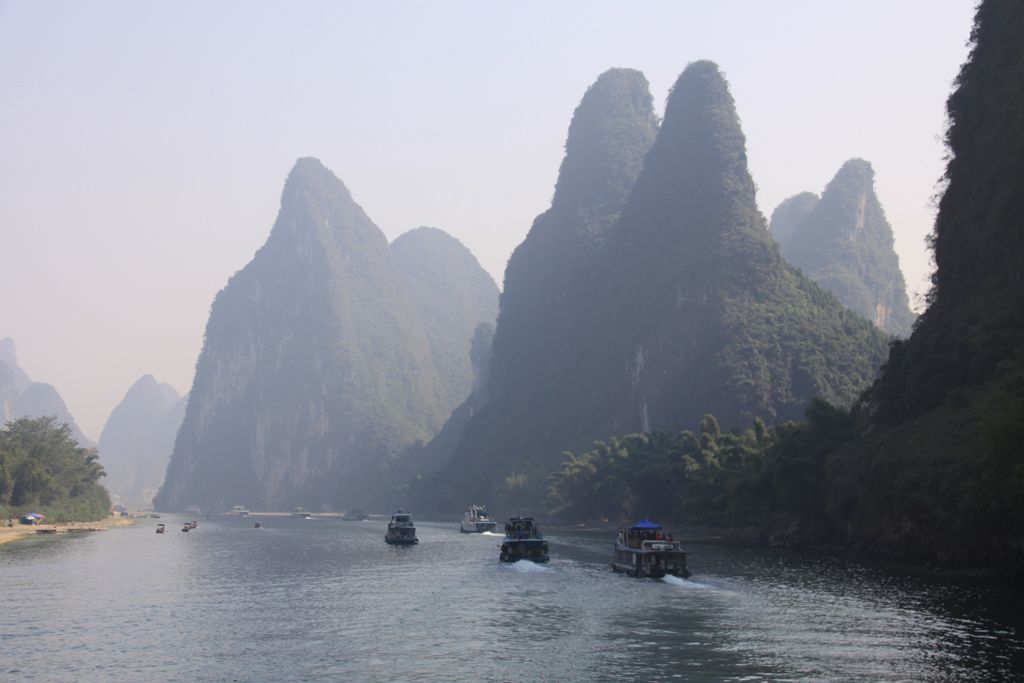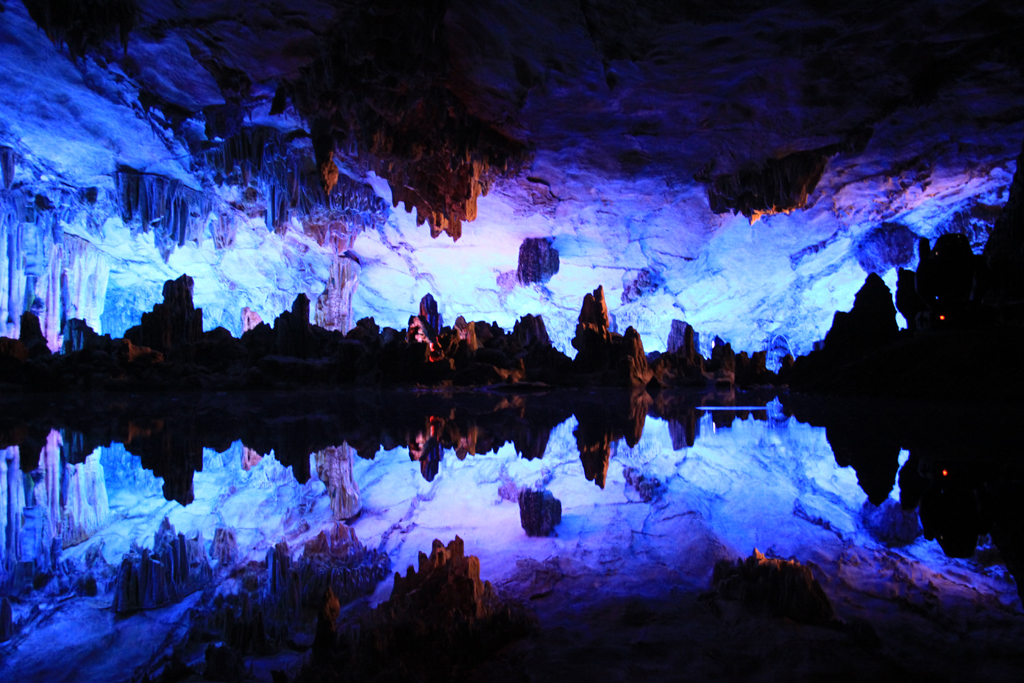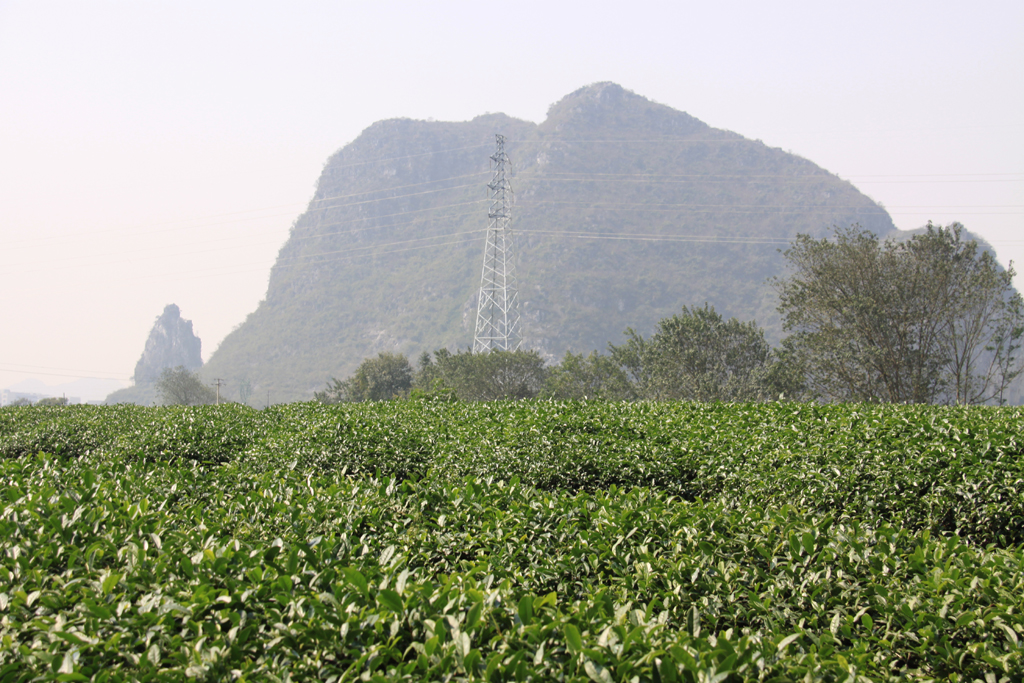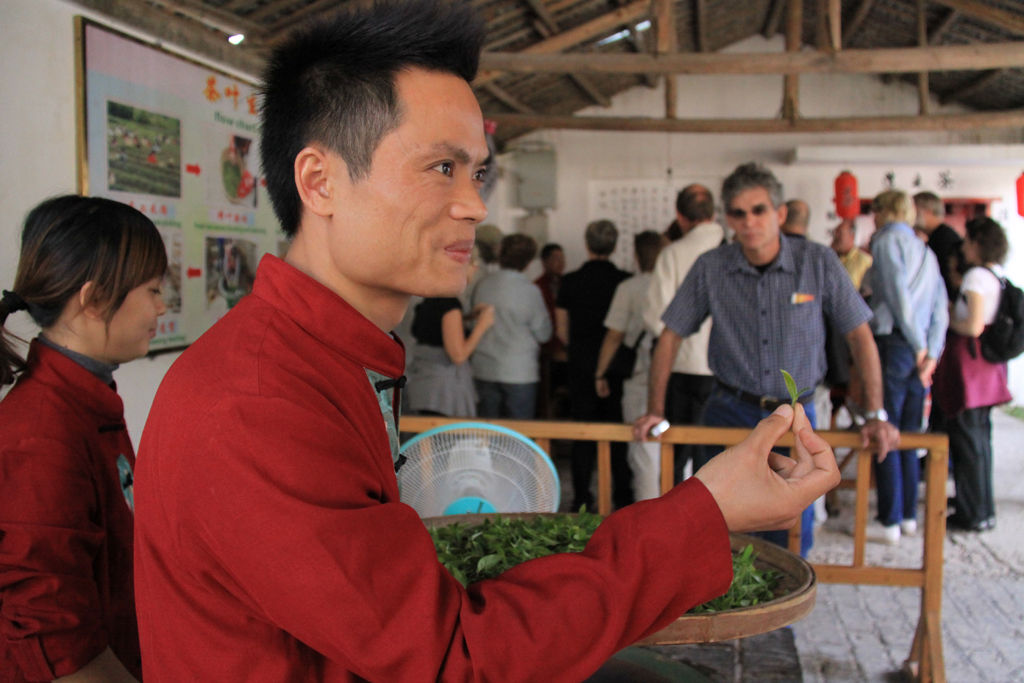In 2010, I took a tour of China that included a visit to the Guilin region which is famous for the Li River. We went for a five hour cruise to view the incredible knobby limestone hills lining the river. The formations are known as Karst topography.

This type of formations can contain a lot of caves like the Red Flute Cave.

Besides the river and caves, Guilin is also known for its tea.

After our cruise and cave tour, our small group had the opportunity to visit a tea farm where we were given a talk about the production of tea and enjoyed a traditional tea service.
As part of the tour, the guide brought us to the edge of a huge field of tea plants and picked some of the leaves. He held each tea leaf up and quizzed us on which type of tea the leaf produced. He held up small, delicate leaves, some a bit larger than others and as he held them up, we’d shout out green tea, white tea or oolong.

Then he held up a leaf that looked like it was ready to die. It was dark, long, thick and wrinkled. He asked us what it was.
We were silent for a few moments when one member of the tour shouted out that it was black tea.
The guide nodded and said “yes, this is what we send to you in the west. Do you know what we used to do with it?”
It was a curious question. We all shook our heads.
Then he threw the leaf over his shoulder and said, “we threw it out.”
😀
Whoa! Those caves are incredible! Do you have any more pics? It’s the perfect setting for one of the scenes in my novel … would love to see them if you do! 🙂